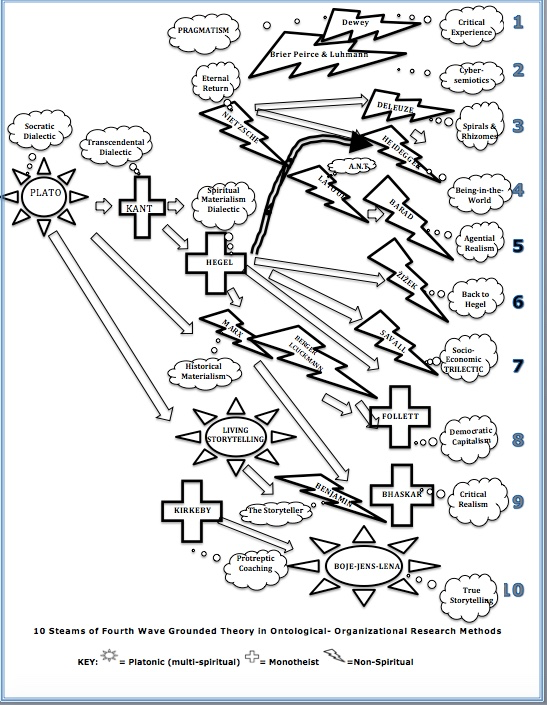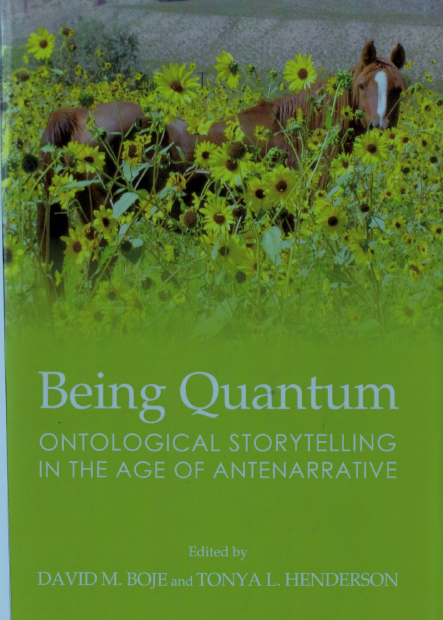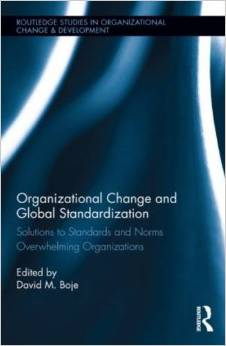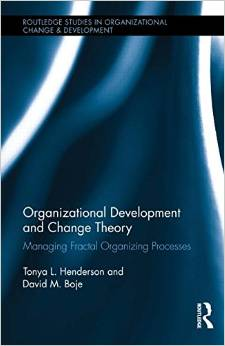Systems Thinking as Dialectical Relational Process Ontologies by D. M. Boje (2017)
How to cite this document:
The latest version of the entry "Texts on Systems Thinking as Dialectical Relational Process Ontologies" may be cited in your work, as follows:
Boje, David M. (2017) "Systems Thinking as Dialectical Relational Process Ontologies", (June 3), URL = <https://davidboje.com/655/655_texts.htm>.
There is a new book I am developing. I am assigning chapters from it each week
REQUIRED BOOK
Organizational Research Methods: Storytelling in Action
David M. Boje
Book being prepared for Routledge, due March 2018
TABLE OF CONTENTS
Intro to 4th Wave Grounded Theory
CHAPTERS ON RELATIONAL PROCESS ONTOLOGIES (RPOs):
- RPO1 - Plato's Dialectic of Double Twisted Spiral and See Boje's YouTube video (34 minutes) on 4th Wave Grounded Theory and the ways Plato's Dialectic can help organizaitonal research methods with a 'conversational interviewing' method, and a double twisted spiral
- PRO2 - Hegel's Dialectic and Video # 2 on Hegel and Marx/Engels and Transistion YouTube Hegel, Marx and Follett
- PRO3 - Marx & Engel's Historical Materialism Dialectic --- Transistion YouTube Hegel, Marx and Follett
- RPO4 - Follett’s Relational Process Ontology
- RPO5 - Heidegger’s Critical Ontology
- RPO6 - Latour’s Actor Network Theory
- RPO7 - Barad’s Sociomateriality of Agential Realism
- RPO8 - Žižek’s Revival of Hegelian Dialectics
- RPO9 - Bhaskar’s Critical Realism Dialectics
- RPO10 - Frank’s Embodied Storytelling Dialectics
- RPO11 - Brier’s Cybersemiotics Dialectic approach to Organization Research
- RPO12 - Deleuze’s Rhizomatics and Multifractality in Organization Research
- RPO13- Savall’s Socioeconomic, Qualimetrics and Tetranormalizing
- RPO14 - True Storytelling Praxis
Figure 1: Relational Process Ontologies to Study Fourth Wave Grounded Theory
KEY: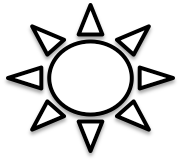 = Platonic (multi-spiritual)
= Platonic (multi-spiritual)  = Montheic
= Montheic  =Non-Spiritual
=Non-Spiritual
There are several different sociomateriality systems 'Relational Process Ontologies' (RPO's) for us to explore this term in our lesson plans and projects.
Our challenge is to co-construct the following table, which I have begun to sketch out.
Table 1: 4th Wave Relational Process Ontologies in Dialectical Organizing Systems (Boje, 1 August, 2017)
|
-
The main contribution of the new book I am doing for Routledge (due March 2018) is a dialectics approach rooted in what my colleagues and I are calling ‘Fourth Wave Grounded Theory.’
- Fourth wave GT takes the turn to ‘ontology’, putting context on center stage, exploring embodiment and sociomateriality (Boje, Saylors, Svane, & Hillon, in review). We propose several ontological foundations to 4th wave. They share an intersubjectivity inquiry in which there is verification of propositions, and in some cases falsification. The differences are in how to approach dialectics. Here again there are several contenders; (Follett, Heidegger, Žižek, Brier, and Bhaskar respectively have different revisions of Hegelian dialectics).
Texts I have Written for Systems Seminar at NMSU:
This new one, to be released in 2018:
Title: Organizational Research Methods (QRM):
Storytelling In Action
Publisher Routledge
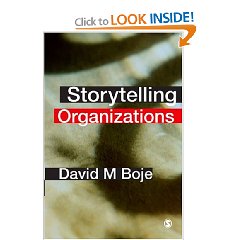 Boje, D. M. (2008). STO Storytelling Organizations. London: Sage. (Written just for the NMSU systems theory seminar). It connects Strategy with Systems.I wrote this book so Yue Cai (Hillon) could dvelop her own strategy dissertation at NMSU. The book has basics of cybernetic and open systems theory, and the 10 Mintzberg schools of strategy. Cai's dissertation works this out at Motorola Corporation.
Boje, D. M. (2008). STO Storytelling Organizations. London: Sage. (Written just for the NMSU systems theory seminar). It connects Strategy with Systems.I wrote this book so Yue Cai (Hillon) could dvelop her own strategy dissertation at NMSU. The book has basics of cybernetic and open systems theory, and the 10 Mintzberg schools of strategy. Cai's dissertation works this out at Motorola Corporation.

Available from Routledge May 2014; See Reviews Boje, D. M. (2014). SoPQ Storytelling Organizational Practices: Managing in the Quantum Age. London: Routledge. The book is featured on our website here: http://www.routledge.com/books/details/9780415815475/ and will feature in relevant upcoming catalogues and leaflets. See book flyer for discount information
These next three books explore the quantum mechanics revolution in systems thinking, as well as multifractal notions of systems thinking. They are for a more advanced seminar that this one.
2014 BOOK edited by David M. Boje and Tonya Wakefield Being Quantum: Ontological Storytelling in the Age of AntenarrativeAvailable from Amazon 2014 Cambridge Scholars Publishing Ltd is registered in England. Reg. No: 4333775; VAT No: 108280727 |
Organizational Change and Global Standardization: Solutions to Standards and Norms Overwhelming Organizations (Routledge Studies in Organizational Change & Development) Hardcover - Available on 31 Jul 2015by David M. Boje (Editor)
|
|---|
SOME RECOMMENDED BOOKS
Bauman, Z. (2010). Liquid Times: Living in an Age of Uncertainty. Cambridge, UK: Polity Press.
Lefebvre, H. (2004). Rhythmanalysis: Space, Time and Everyday Life. NY: Continuum.
Kötke, William H. (2007) The Final Empire: The Collapse of Civilization and the Seed of the Future by Wm. H. Kötke (Nov 26, 2007)
-
The BOOK is FREE athttp://www.rainbowbody.net/Finalempire/ (you can ask to Print the webpages to PDF, and then save or print it, or both
- or go to Amazon and buy a print version of it (Sorry, No more Kindle for this book)
Boje, David M. (2008). Critical Theory Ethics for Business & Public Administration (Information Age, 2008) - Order it on line at Amazon
HELPFUL ONLINE BOOKS (James, Boje 2013 and any other you choose).
Arendt, Hannah (1958). The Human Condition. Chicago: University of Chicago Press.
Aristotle's (350 BCE) Nicomachean Ethics (aka Virtue Ethics). Translated by W. D. Ross. Book is fare on lone. On line version http://classics.mit.edu/Aristotle/nicomachaen.html
Aristotle (350 BCE) Physis (check his views on space and time).
Aristotle's Poetics. (350 BCE). Translated by S. H. Butcher.
Aristotle. (350 BCE). Rhetoric. Translated by W. Rhys Roberts
Aristotle (350 BCE) Topics.
Bernstein, R. J. (1989, November). Pragmatism, pluralism and the healing of wounds. In Proceedings and addresses of the American Philosophical Association (pp. 5-18). American Philosophical Association.
Boje, D. M. (2012f). Quantum Storytelling. Free online book (until it gets finished with its revisions, and a publisher calls).
Boje, D. M. (2012g). Quantum Spirals for Organization Consulting online book (until it gets finished with its revisions, and a publisher calls).
Boje, D. M. (2013). Pragmatist Storytelling Philosophy for Management and Organizational Research and Practice. Book in preparation for London: Routledge. Access in drop box.
Derrida, Jacque. (1993). Politics and Friendship.
Dewey, J. (1910). How We Think. Boston/Chicago/NY: D. C. Heath and Company.
Dewey, John. (1929). The Quest for Certainty. GIfford Lectures.
Heidegger, Martin. (1977). A Question Concerning Technology. http://simondon.ocular-witness.com/wp-content/uploads/2008/05/question_concerning_technology.pdf
Heisenberg, Werner. (1958). Physics and Philosophy.
Hobbes, Thomas. (1651). Leviathan the Matter, Forme, & Power of a Common-wealth Ecclesiasticall and Civill.
http://socserv2.socsci.mcmaster.ca/econ/ugcm/3ll3/h8obbes/Leviathan.pdf
Kant, Immanuel. Critique of Pure Reason (especially section on architectonic systems, as perhaps the earliest approach to systems theory).
Kincheloe, Joe L.; Horn, Raymond A. (Eds, 2007) Praeger Handbook of Education and Psychology Vol. 1. Greenwood Publishing Group.
Lyotard, Jean-Francois. (1979/1984). The Postmodern Condition. the English version, a pdf is on line and is searchable.
Mead (1932) The Philosophy of the Present. With Introduction by Arthur E. Murphy and Prefatory Remarks by John Dewey. Chicago/London: University of Chicago Press (1932 is based on Mead's 1930 lectures compiled and edited after his death in 1931; 1984 revised edition).
Merleau-Ponty (1962). Phenomenology of Perception
Pierce, Charles Sanders. (1904) New Elements
Rorty, R. (1979). Philosophy and the Mirror of. Nature. Princeton: Princeton University Press.
Rorty, R. (1982). Consequences of Pragmatism. University of Minnesota Press. Introduction.
Rorty, R. (1999). Philosophy and Social Hope. Penguin. Introduction
MORE BOOKS
Heidegger, M. (1992). History of the Concept of Time: Prolegomena. Translated by Theodore Kisiel. Bloomington & Indianapolis: Indiana University Press.
Heidegger, M. (1999). Ontology – The Hermeneutics of Facticity. Translated by John van Buren. Bloomington & Indianapolis: Indiana University Press.
Not Required, also good choices:
-
Herbert, Nick (1985).Quantum Reality: Beyond the New Physics. NY: Anchor Books.
2. Bourdieu, Pierre. (1991).The Political Ontology of Martin Heidegger. CA: Stanford University Press.
Slavoj Zizek (2000). Ticklish Subject: The Absent Centre of Political Ontology. London/NY: Verso.
3. CTE - Boje, D. M. 2008b. CTE Critical Theory Ethics for Business and Public Administration. Charlotte, NC: Information Age Press See Table of Contents
NM - Boje, D. M. 2001
Narrative Methods for Organizational & Communication Research. London:
Sage (should be in books store; if not order from Amazon; paperback)
4.
See http://davidboje.com/655/ for the readings we will select for the class.
On
Line Resource: Annotated Reference Listing http://business.nmsu.edu/~dboje/690/annotated_storytelling_org_biblio_boje.htm
5. Scott, W. Richard and Gerald Davis. 2007. Organizations and Organizing: Rational, Natural, and Open System Perspectives. Upper Saddle River, NJ: Prentice- Hall
Cited Articles /Chapters in Syllabus
Tarby, Fabien. (2013). A Short Introduction to Alain Badiou's Philosophy. Chapter 6 (pp. 131-154) in Alain Badiou (2013). Philosophy and the Event. Translated by Louise Burchill. Cambridge, UK/Malden, MA: Polity. English 2013, French 2010.
MORE RECOMMENDED BOOKS
Arendt, Hannah. (1958). The Human Condition. Chicago/London: The University of Chicago Press.
Aristotle (written 350 BCE). English (1954) translation Aristotle: Rhetoric and Poetics. Introduction by Friedrich Solmsen; Rhetoric translated by W. Rhys Roberts; Poetics translated by Ingram Bywater. NY: The Modern Library (Random House). Poetics was written 350 BCE.
Bakhtin, M. M. (1993). Toward a Philosophy of the Act. Translation and Notes by Vadim Liapunov. Edited by Michael Holquist & Vadim Liapunov. Austin, TX: University of Texas Press. From Bakhtin's early 1920s notebooks. 1993 is First English printing.
Bennett, Jane. (2010) Vibrant Matter: A Political Ecology of Things. Durham/London: Duke University Press.
Berger, Peter L. & Luckmann, Thomas. 1966. The Social Construction of Reality: A Treatise in the Sociology of Knowledge. NY: Anchor Books, A Division of Random House.
Boje, D. M. (2001). Narrative Methods for Organizational and Communication Research. London: Sage. If not in bookstore, Order from Amazon Has basic analyses such as deconstruction, theme analysis, grand narrative, plot, story network, etc. and introduces concept of antenarrative.
Boje, David M., Bernard Bernes, and John Hassard. (2012). The Routledge Companion to Organization Change. http://www.routledge.com/books/details/9780415556453/
Latour, Bruno. (2005). Reassembling the Social: An Introduction to Actor-Network-Theory. Oxford/NY: Oxford University Press.
Mead, G. H. (1932/1980). The Philosophy of the Present. Edited by Arthur E. Murphy with Prefatory Remarks by John Dewey. London/Chicago: University of Chicago Press. First Phoenix Printing, 1980.
Minahen, C. D. (1992). Vortex/t: The Poetics of Turbulence. University Park, PN: The Pennsylvania State University Press.
Morson, Gary Saul. (1994). Narrative and Freedom: The Shadows of Time. New Haven/London: Yale University Press.
Rosile, G.A. and Boje. D. M. (2002). Restorying and Postmodern Organization Theater: Consultation to the Storytelling Organization. Chapter published in Ronald Sim’s (ed) book: Changing the Way We Change, published by Quorum Books, pp. 271-291.
White and Epston (1990). Narrative Means to Therapeutic Ends. New York: Norton and Company.
